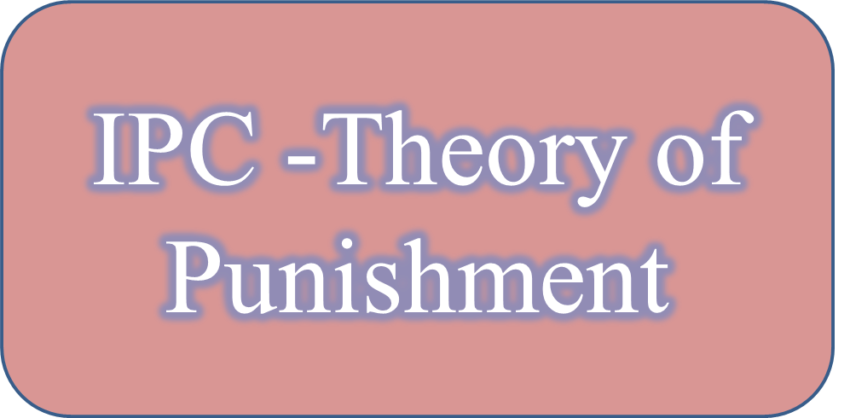IPC -Theory of Punishment
There are five theory regarding punishment
Retributive theory–
This theory is based on retribution, a ‘get even’ concept. ‘An eye for an eye and a tooth for a tooth’ is the motto of this theory. The wrongdoer should be made to suffer in proportion to the injury he has caused to the victim is the principle behind this theory.
Expiatory theory–
It is a part of the retributive theory. This theory propounds that the punishment should be in order to adjust the suffering to the sin. [The punishment should be in proportion to the quantum of wrong, and after the wrongdoer undergoes the punishment it is presumed that he gets purified, and thus he once again becomes an accepted member of the society.
Deterrent theory–
The deterrent theory of punishment gives prominence to the notion of deterrence in the mind of the criminal as well as in others. The offender knows that if he violates the law he would be visited with penalty, and this fear in him causes him to behave as a normal human being. Similarly, by punishing the criminal, a deterrent effect is created in the mind of others that if they ever thought of violating the law they too would be visited with penalty, and this fear in them keeps them away from breaking the Law.
Preventive theory–
Preventive theory envisages the imposition of penalty with a view to prevent or disable the offender from committing the offence again. Repetition of the crime is thus prevented by disabling the criminal. Prevention of a wrongful conduct is ensured. It follows the well-known principle ‘prevention is better than cure’. the offender is rendered incapable of committing the crime again. This may be done by imposing capital punishment, or by imprisonment, or by disqualification orders like suspending driving licence in cases of motor vehicle offences, or by preventive detention, and security for keeping the peace and for good behaviour and the like.
Reformative theory
The reformative theory, a comparatively recent concept, gives emphasis on the reformation of the criminal. It treats criminals as primarily Sick people needing corrective measures with a view to restore them to the society as good citizens. It believes in educating the offenders in such a way as to make them better citizens of tomorrow. It treats a Criminal mind as a diseased mind which requires careful diagnosis and proper attention to cure him.
IPC -Theory of Punishment

